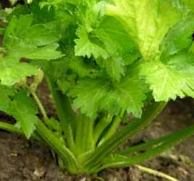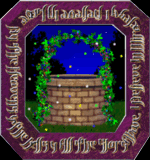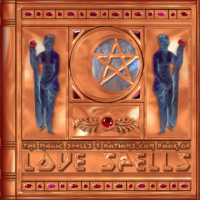Celery
In 1879, Mr. Gibson Ward, then President of the Vegetarian Society, wrote some letters to the Times, which commanded much attention, about Celery as a food and a medicament. "Celery," said he, "when cooked, is a very fine dish, both as a nutriment and as a purifier of the blood; I will not attempt to enumerate all the marvellous cures I have made with Celery, lest medical men should be worrying me en masse. Let me fearlessly say that rheumatism is impossible on this diet."
Added Jun 17, 2010
| 7,069 Reads
CELERYThe Parsleys are botanically named Selinon, and by some verbal accident, through the middle letter "n" in this word being changed into "r," making it Seliron, or, in the Italian, Celeri, our Celery (which is a Parsley) obtained its title. It is a cultivated variety of the common Smallage (Small ache) or wild Celery (Apium graveolens), which grows abundantly in moist English ditches, or in water. Celery is an umbelliferous herb, unwholesome as a food, and having a coarse root, with a fetid smell. But, like many others of the same natural order, when transplanted into the garden, and bleached, it becomes aromatic and healthful, making an excellent condimentary vegetable. But more than this, the cultivated Celery may well take rank as a curative Herbal Simple. Dr. Pereira has shown us that it contains sulphur (a known preventive of rheumatism) as freely as do the cruciferous plants, Mustard, and the Cresses. In 1879, Mr. Gibson Ward, then President of the Vegetarian Society, wrote some letters to the Times, which commanded much attention, about Celery as a food and a medicament. "Celery," said he, "when cooked, is a very fine dish, both as a nutriment and as a purifier of the blood; I will not attempt to enumerate all the marvellous cures I have made with Celery, lest medical men should be worrying me en masse. Let me fearlessly say that rheumatism is impossible on this diet; and yet English doctors in 1876 allowed rheumatism to kill three thousand six hundred and forty human beings, every death being as unnecessary as is a dirty face." The seeds of our Sweet Celery are carminative, and act on the kidneys. An admirable tincture is made from these seeds, when bruised, with spirit of wine; of which a teaspoonful may be taken three times a day, with a spoonful or two of water. The root of the Wild Celery, Smallage, or Marsh Parsley, was reckoned, by the ancients, one of the five great aperient roots, and was employed in their diet drinks. The Great Parsley is the Large Age, or Large Ache; as a strange inconsistency the Romans adorned the heads of their guests, and the tombs of their dead with crowns of the Smallage. Our cultivated Celery is a capital instance of fact that most of the poisonous plants call, by human ingenuity, be so altered in character as to become eminently serviceable for food or medicine. Thus, the Wild Celery, which is certainly poisonous when growing exposed to daylight, becomes most palatable, and even beneficial, by having its edible leaf stalks earthed up and bleached during their time of cultivation. Dr. Pereira says the digestibility of Celery is increased by its maceration in vinegar. As taken at table, Celery possesses certain qualities which tend to soothe nervous irritability, and to relieve sick headaches. "This herb Celery [Sellery] is for its high and grateful taste," says John Evelyn, in his Acetaria, "ever placed in the middle of the grand sallet at our great men's tables, and our Praetor's feasts, as the grace of the whole board." It contains some sugar and a volatile odorous principle, which in the wild plant smells and tastes strongly and disagreeably. The characteristic odour and flavour of the cultivated plant are due to this essential oil, which has now become of modified strength and qualities; also when freshly cut it affords albumen, starch, mucilage, and mineral matter. Why Celery accompanies cheese at the end of dinner it is not easy to see. This is as much a puzzle as why sucking pig and prune sauce should be taken in combination,—of which delicacies James Bloomfield Rush, the Norwich murderer, desired that plenty should be served for his supper the night before he was hanged, on April 20th, 1849.
Added Jun 17, 2010
| 7,069 Reads
Share The Magic ...
The GoE MONEY!!! Course - A Course In Real MONEY MAGIC!
|





















